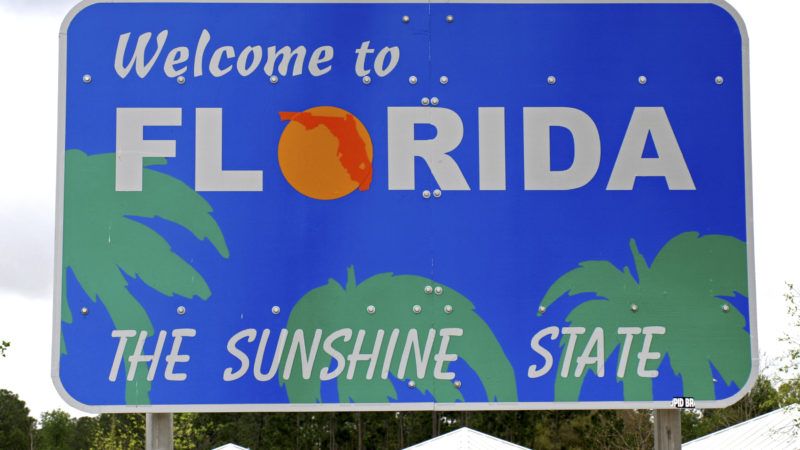Appeals Court Upholds Florida Law Requiring Felony Offenders To Pay Off Fines Before Regaining Voting Rights
The ruling is a major setback for civil liberties groups trying to re-enfranchise an estimated 775,000 Floridians with felony records.

A federal appeals court today upheld a Florida law requiring felony offenders to pay off their court fines and fees before they can regain the right to vote. The decision is a setback for civil liberties groups' attempts to re-enfranchise an estimated 775,000 residents in the battleground state.
In a 6–4 ruling, the 11th Circuit Court of Appeals held that the law, passed by Florida Republicans last year, does not violate the Equal Protection Clause of the 14th Amendment or the 24th Amendment's prohibition on poll taxes. This overturned a U.S. district judge's ruling in May, which held that the state's inscrutable system for determining voting eligibility discriminated against offenders who were too poor to pay off their fines.
"Florida withholds the franchise from any felon, regardless of wealth, who has failed to complete any term of his criminal sentence—financial or otherwise," Judge William Pryor wrote in today's ruling.
The case is expected to be appealed to the Supreme Court. But it all but ensures that most of those in Florida with felony records won't be able to register to vote in time for this November's election. As WLRN reported last year, Florida felons would have to pay back hundreds of millions of dollars to restore their voting rights.
The ruling will not immediately affect the status of some 85,000 residents with felony records who have already registered to vote.
Julie Ebenstein, a senior staff attorney with the American Civil Liberties Union's Voting Rights Project, said in a press release that the ruling "runs counter to the foundational principle that Americans do not have to pay to vote" and called it "an affront to the spirit of democracy."
The fight over felon voting rights in Florida began in 2018, immediately after Florida voters decisively passed Amendment 4, a constitutional amendment restoring voting rights to those with felony records. Florida was one of a small group of states that enforced a lifetime voting ban for anyone with a felony record, and Amendment 4 was hailed as one of the largest single expansions of the franchise in recent history.
The amendment's language said that voting rights would be restored "upon completion of all terms of sentence including parole or probation," but it did not say whether "all terms" included financial obligations imposed by courts.
Florida Republicans, including Gov. Ron DeSantis, argued that it did, and they passed a bill making voting eligibility contingent on first paying off court fines and fees. Civil rights groups say that amounts to a poll tax, and several of them filed lawsuits last year challenging the new law at both the state and federal levels.
At trial this April, state officials repeatedly admitted they couldn't easily track how much someone owed in criminal fines and fees; the documents were often scattered across multiple county agencies.
U.S. District Judge Robert Hinkle ruled in May that the Florida government could condition voting on paying off court fines and fees, but that blocking offenders who are too poor to pay their fines is discriminatory. Hinkle had previously ordered the state to create a clear process to identify whether former felony offenders are eligible to vote, exactly how much money they owed, and if they were indigent.
The 11th Circuit's opinion today vacated Hinkle's orders, finding that the Due Process Clause created no obligation for the Florida government to provide felony offenders with records to determine how much they owe.
"So long as a State provides adequate procedures to challenge individual determinations of ineligibility—as Florida does—due process requires nothing more," Pryor wrote.
"This is a deeply disappointing decision," Paul Smith, vice president of the Campaign Legal Center, one of the other groups that challenged the law, said in a press release. "While the full rights restoration envisioned by Amendment 4 has become less likely to be realized this fall, we will continue this fight for all Florida voters, so the full benefits of Amendment 4 will someday be realized."


Show Comments (58)